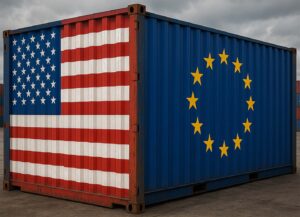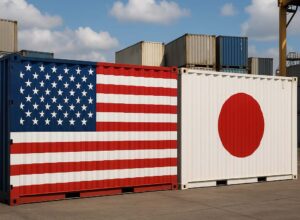The Removal of the De Minimis Exemption for U.S. Imports and the Value of Using a U.S.-Based Import Agent
In a significant shift in U.S. trade policy, the de minimis exemption for imports, which allowed low-value shipments to enter the country duty-free and with minimal regulatory scrutiny, has been eliminated as of 2025. Previously, under Section 321 of the Tariff Act of 1930, goods valued at $800 or less per shipment could bypass formal customs entry processes, duties, and taxes. This exemption fueled the rapid growth of e-commerce, enabling foreign sellers, particularly from countries like China, to ship small packages directly to U.S. consumers at low cost. However, concerns over trade imbalances, national security, and the influx of unregulated goods prompted the U.S. government to repeal this provision, reshaping the import landscape.
The removal of the de minimis exemption means that all imports, regardless of value, are now subject to formal customs entry, duties, taxes, and compliance with U.S. regulations, such as product safety and labeling standards. For foreign companies exporting to the U.S., this change increases complexity and cost. Shipments must now be accompanied by detailed documentation, including commercial invoices, packing lists, and Harmonized System (HS) codes, to determine applicable tariffs and taxes. Additionally, compliance with regulations enforced by agencies like the Consumer Product Safety Commission (CPSC) and the Food and Drug Administration (FDA) is mandatory, adding layers of oversight that many foreign exporters are ill-equipped to navigate independently.
This is where partnering with a U.S.-based import agent and importer of record (IOR) becomes a strategic advantage for foreign companies. An import agent, typically a licensed customs broker, specializes in navigating U.S. Customs Service procedures, ensuring compliance with documentation, tariff classification, and regulatory requirements. The IOR, a legally responsible entity based in the U.S., assumes liability for the imported goods, ensuring adherence to all federal regulations and facilitating communication with customs authorities. For foreign exporters, these services are critical to avoiding costly delays, penalties, or shipment rejections.
Using a U.S.-based import agent such as Freightclear streamlines the import process by leveraging local expertise. Agents are well-versed in U.S. trade laws, tariff schedules, and free trade agreements, enabling them to optimize duty payments and ensure accurate HS code classifications. They also manage the paperwork burden, reducing the risk of errors that could trigger audits or fines. For example, misclassifying a product could lead to overpayment of duties or, worse, accusations of customs fraud. An experienced agent mitigates these risks, saving time and money.
The IOR ( Importer of Record ) role is equally vital. By designating a U.S.-based IOR, ie our partner Swiftports, foreign companies avoid the need to establish a legal presence in the U.S., a costly and complex endeavor. The IOR ensures compliance with regulations, such as FDA requirements for food or cosmetics, and handles post-entry obligations, including recordkeeping and responding to customs inquiries. This is particularly important for small and medium-sized exporters who lack the resources to manage U.S. compliance independently.
In the post-de minimis era, foreign companies face heightened scrutiny and costs when exporting to the U.S. Partnering with a U.S.-based import agent and IOR is no longer optional but a smart practice to ensure seamless market access, regulatory compliance, and cost efficiency. By leveraging local expertise, exporters can focus on growing their U.S. presence while minimizing the risks of a complex trade environment.






